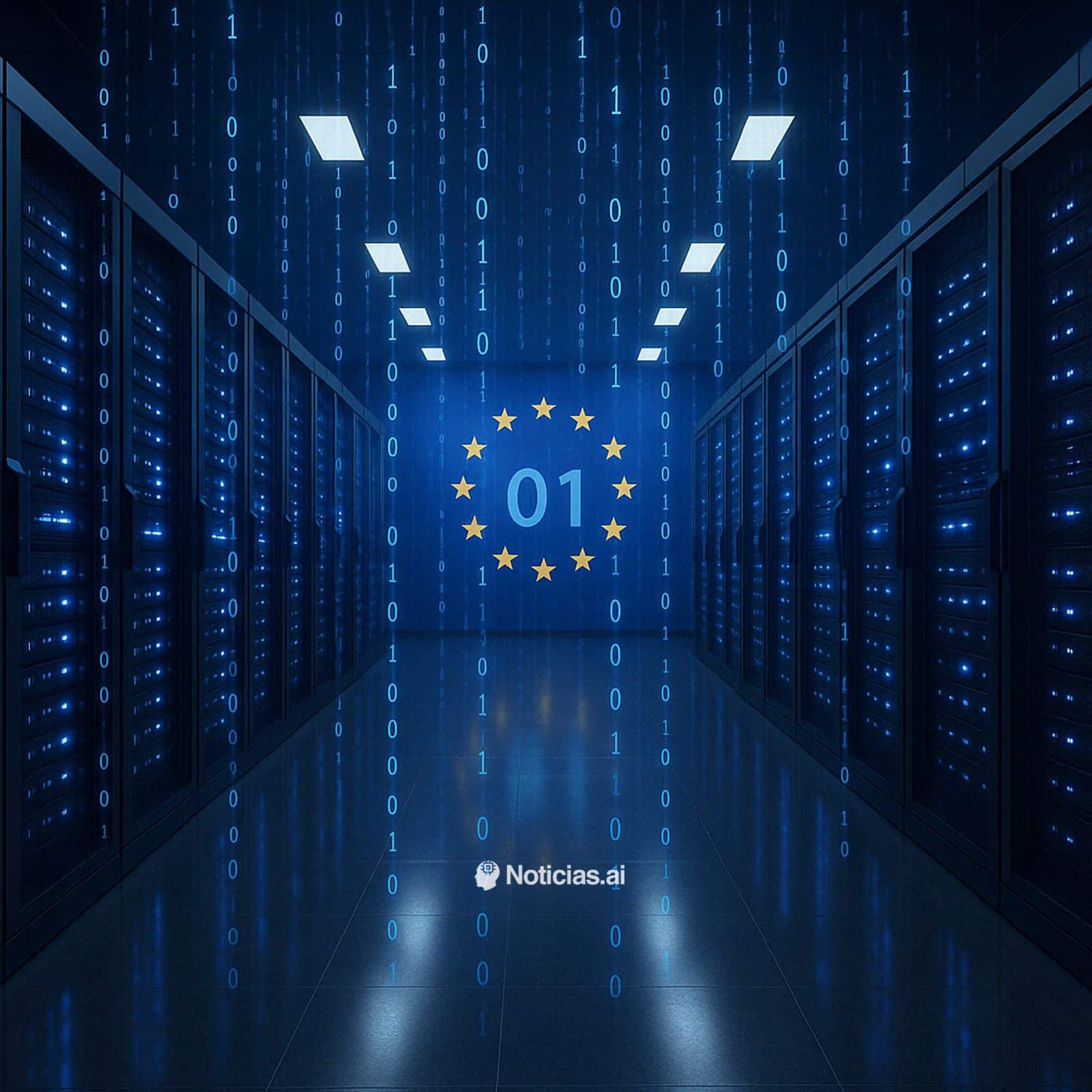Spain is experiencing a digital paradox: while promoting the construction of dozens of data centers across the country with public support and a favorable investment climate, the government has decided to place strict controls on their energy and water consumption. The sector, vital for artificial intelligence, cloud storage, and the digital economy, now faces more rigorous regulations aimed at limiting its environmental impact.
In recent years, Spain has strengthened its position as one of the most attractive destinations for data center deployment. Factors such as the availability of renewable energy, international fiber optic interconnection, and strategic location have attracted projects from tech giants like Amazon Web Services, Microsoft, Meta, and Google. Through the Spain Digital 2025 program, the government has allocated millions of euros to promote the creation of smart data centers in public administrations and businesses. According to the Ministry of Digital Transformation, this deployment could triple current installed capacity from about 200 MW to nearly 600 MW within two years.
However, this rapid growth has raised environmental concerns: the electricity and water consumption of these facilities—which are necessary for cooling servers and keeping them operational—could be particularly problematic in a country facing recurrent droughts and peaks in electricity demand.
The Ministry for Ecological Transition and Demographic Challenge (MITECO) has issued a public consultation on a draft Royal Decree that will require data centers with over 500 kW of contracted power to provide detailed reports on their annual electricity and water consumption, the percentage of renewable energy used, refrigerants and their environmental impact, energy efficiency (PUE), residual heat reuse strategies, and their contribution to the electrical system and local economy. This regulation, aligned with Directive (EU) 2023/1791 and Delegated Regulation 2024/1364, will compel larger centers (over 100 MW) to rank among the top 15% most efficient in Europe. Additionally, this data will be incorporated into a centralized EU database for monitoring and comparison.
Sources from the sector confirm that non-compliance could result in fines and, in severe cases, restriction of access to the electrical grid. Existing facilities will have three months to adapt to the new requirements. While environmental groups have welcomed the measure, several tech associations warn that overly strict regulations could hinder investments, especially in planning stages.
Recent cases of massive water use at Meta and Microsoft facilities in the United States, as well as Amazon plants in water-stressed countries, have heightened public awareness regarding the need for transparency and sustainability in data centers. In Spain, regions like Aragón and Castilla-La Mancha have already expressed concern about the potential impact on limited resources. The government argues that the new rules are not meant to hinder digital growth but to ensure it proceeds in harmony with ecological transition and emission reduction commitments.
Balancing attracting high-value technological investment and minimizing adverse effects on water, energy, and local power grids presents a delicate challenge for Spain. The ongoing public consultation, open until September 15, will be critical in shaping the final scope of the regulation.
Frequently Asked Questions (FAQ)
1. Why does the government want to regulate data center consumption now?
Because the sector’s rapid growth has increased concerns over its environmental impact, particularly regarding electricity and water use amid drought conditions and energy transition efforts.
2. Which data centers will be required to report their consumption?
Centers with contracted power over 500 kW will need to provide detailed data on energy, water, efficiency, and sustainability.
3. What are the penalties for non-compliance?
The draft decree foresees monetary fines and, in serious cases, restrictions or removal of access to the electrical grid.
4. Could Spain lose investments due to this regulation?
It’s possible, but the government claims to aim for a balanced framework that combines competitiveness with sustainability, similar to practices in other European countries.

